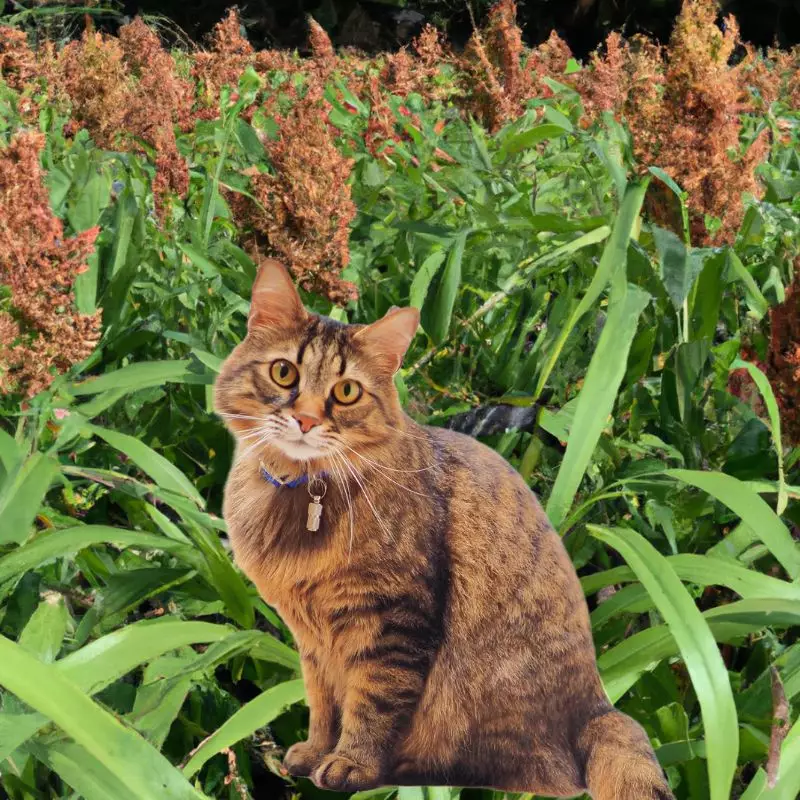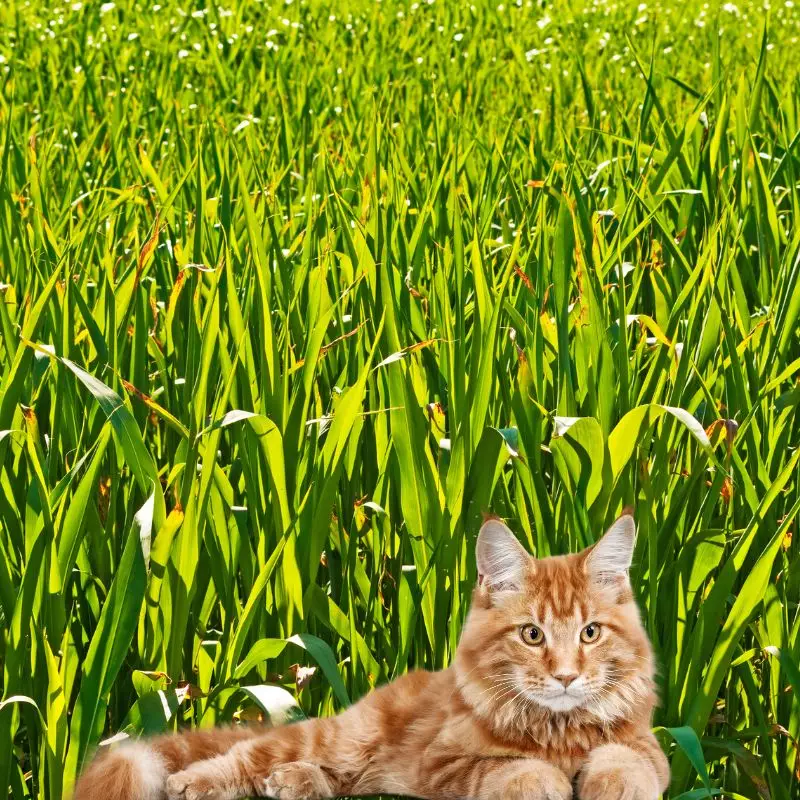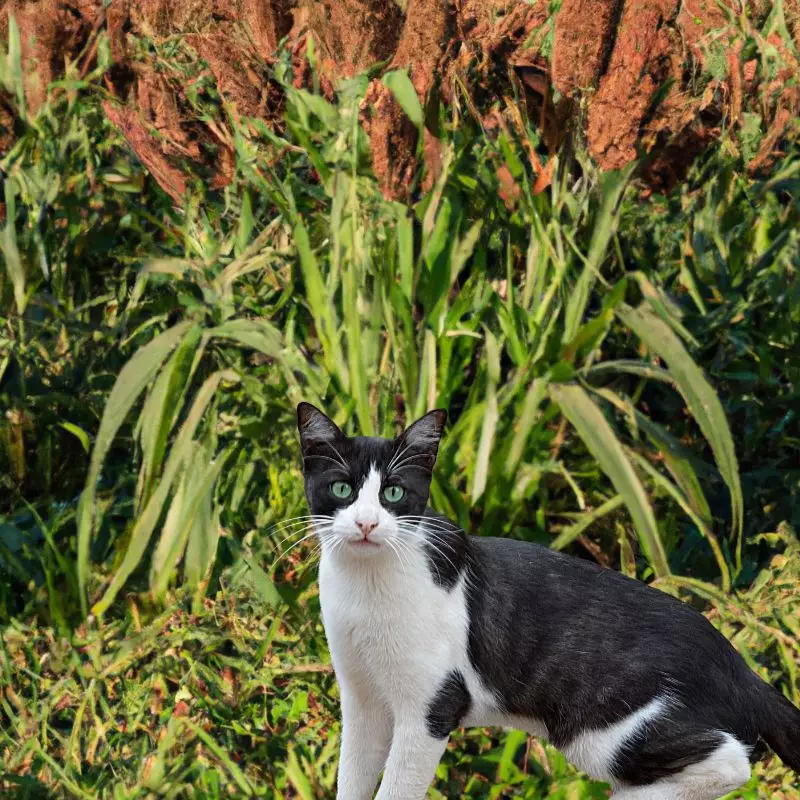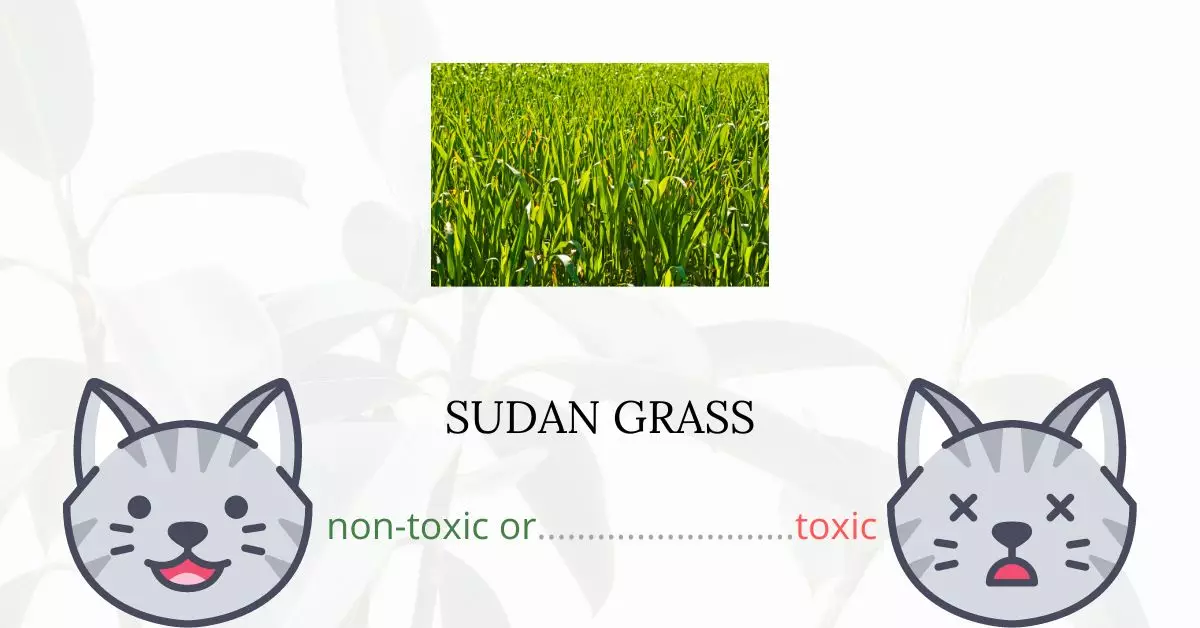Sudan grass is not toxic to cats.
This conclusion is not solely based on our assessment, but is a result of collaborative efforts with a team of experienced DVMs (doctors of veterinary medicine). With their expert contributions, we ensure the accuracy and relevancy of our information regarding the potential risks of various plants, especially Sudan Grass, and their effects on cats. Our comprehensive research also includes references from high-authority websites such as ASPCA and PetMD.
While ASPCA categorizes Sudan Grass as non-toxic to cats, it’s important for cat owners to exercise caution and not encourage their feline companions to ingest any plant, even if it is classified as safe.
Can Cats Eat Sudan Grass?

Sudan grass might be classified as a safe plant but it is not advisable for cats to eat this plant. Cat meals should be protein-based because they are obligate carnivores. It is tough for carnivorous species to digest plant materials thus, plants should be avoided as much as possible.
While Sudan grass is safe, you should keep in check that your cat will not eat excessive quantities of this plant. Otherwise, they may suffer from indigestion or other GI problems. This condition may induce cats to vomit and have diarrhea.
It is also possible for some cats to have allergic reactions to certain plants. Plants can have different effects on our feline companions. If you are in doubt about what your kitty has eaten, talk to a veterinarian soonest.
What is a Sudan Grass?

Depending on the variety and growing conditions, Sudan grass can be a hardy tufted annual or a brief-lived perennial with unbranched culms. It typically has strong prop roots and mostly puberulent to briefly pilose nodes. The leaf sheaths of Sudan grass are typically glabrous, and waxy, with a prominent, pale midrib and scabrous margins.
Eastern Africa’s tropical and subtropical regions are home to the Sudan grass. In honor of its families, it may also be referred to as Sorghum bicolor or Sorghum arundinaceum. According to some authorities, all three species are S. bicolor subspecies.
The plant is grown for forage or as a cover crop in Southern Europe, South America, Central America, North America, and Southern Asia.
Keeping Cats Away From Sudan Grass

Felines typically mark their territory by peeing in an area. As soon as you notice urine spray, wash the walls or doors in question. To remove territorial markers and stop recurrent spraying, clean with an odor neutralizer.
Cats can be helped to break their connection with your garden by giving them a gentle spritzing with water from a spray bottle. Sprinkler systems that detect motion can also help in deterring cats.
Keeping your cat well-fed and entertained indoors will also prevent them from wandering outdoors. Outdoor cats are more likely to encounter plants that can pose a threat to them. Moreover, bored and hungry cats are also highly likely to eat plants either indoors and outdoors.
Plants to Avoid For Your Cats
If you are a cat owner and unsure if the plants growing in your yard are harmful to your cats, check out this list of toxic plants for cats. You can also check our list of non-toxic plants for cats.





